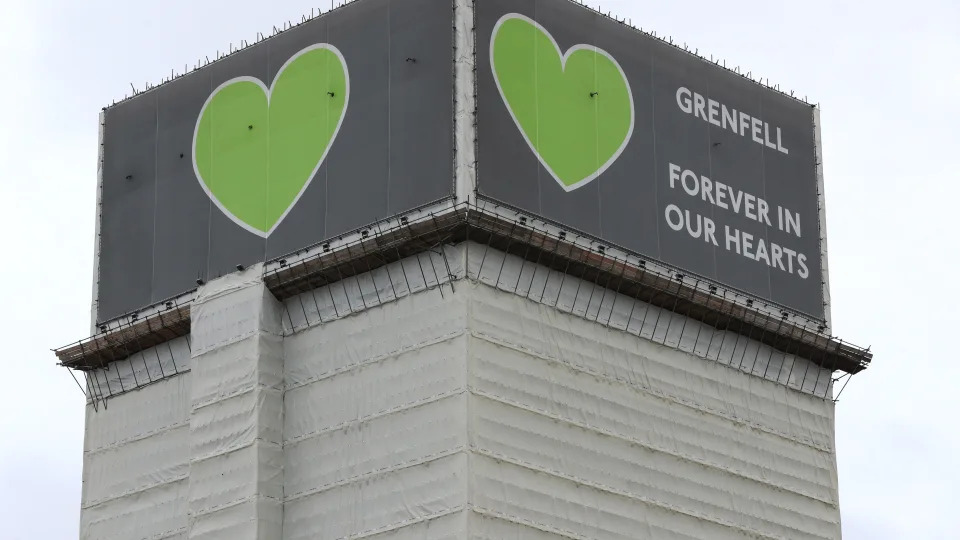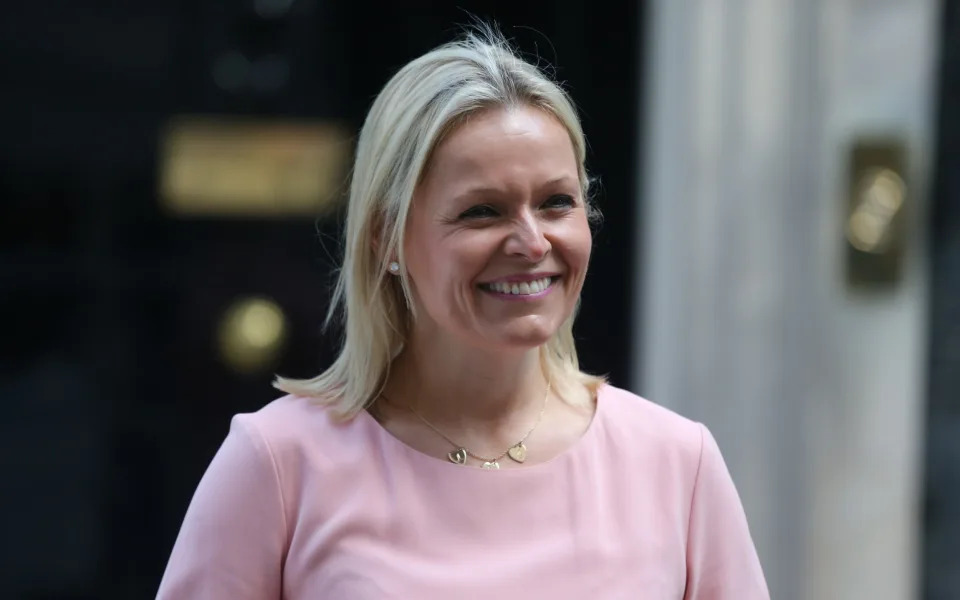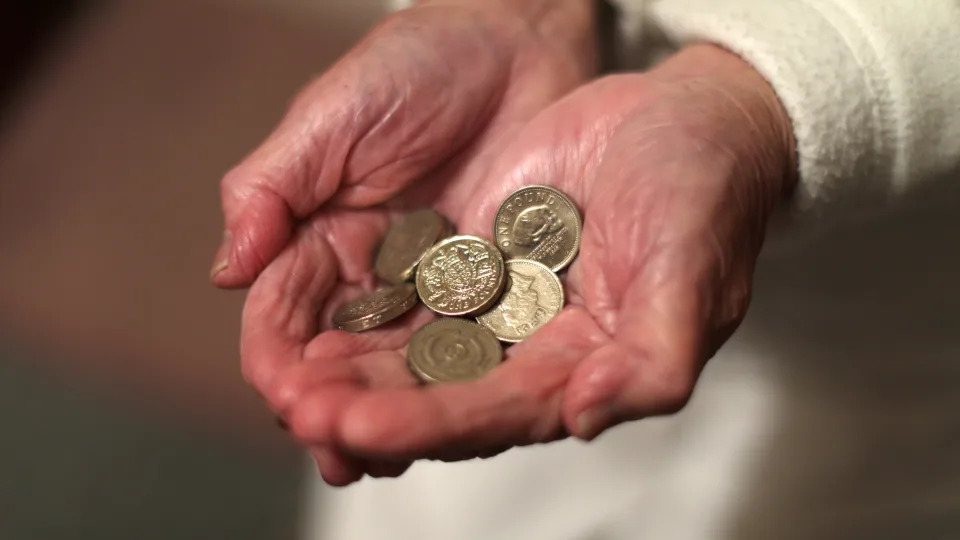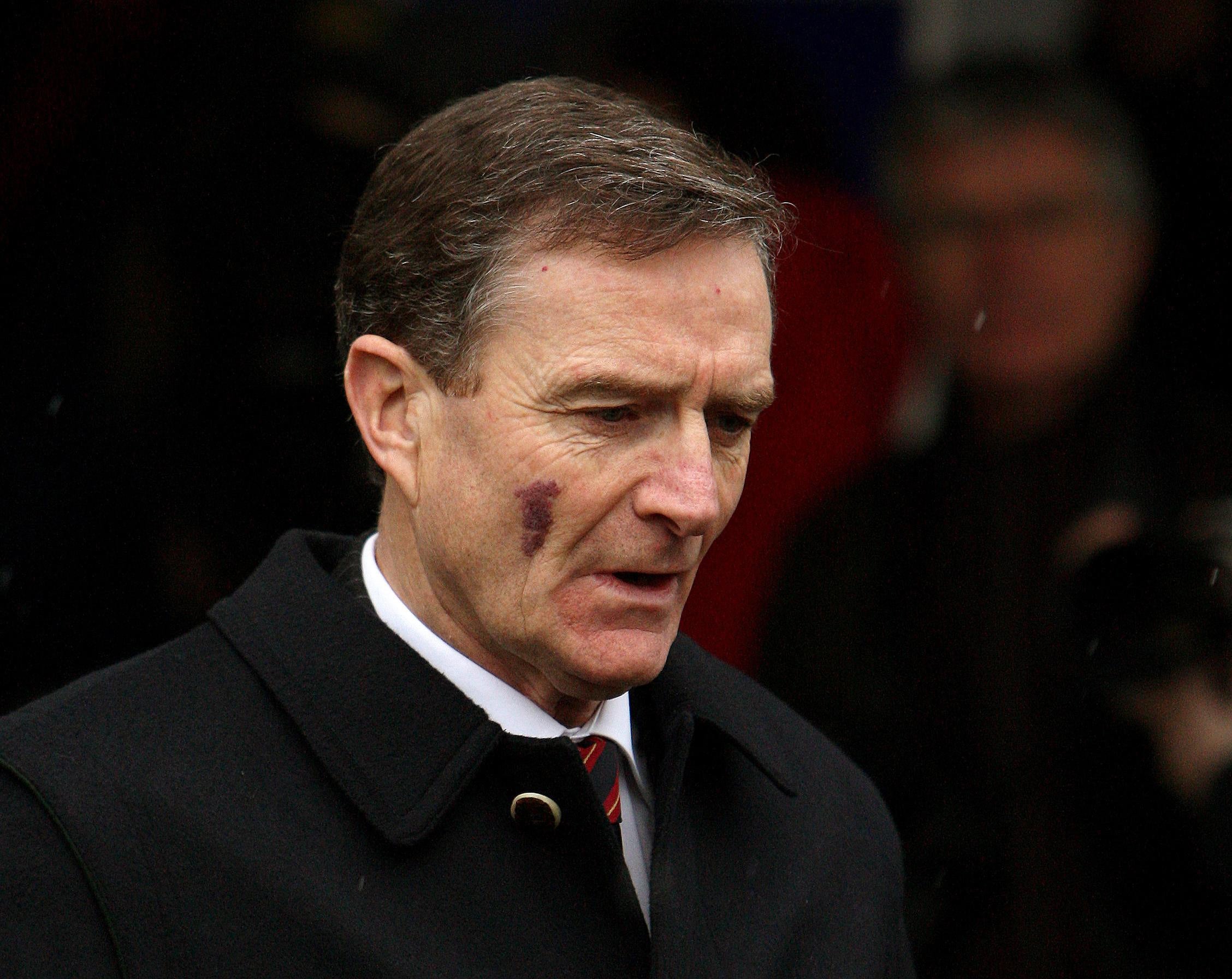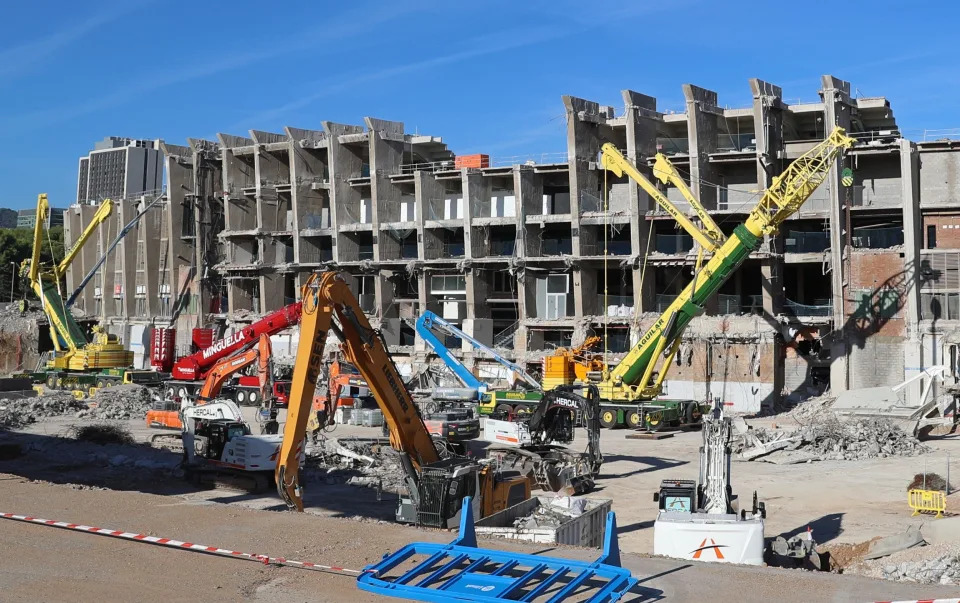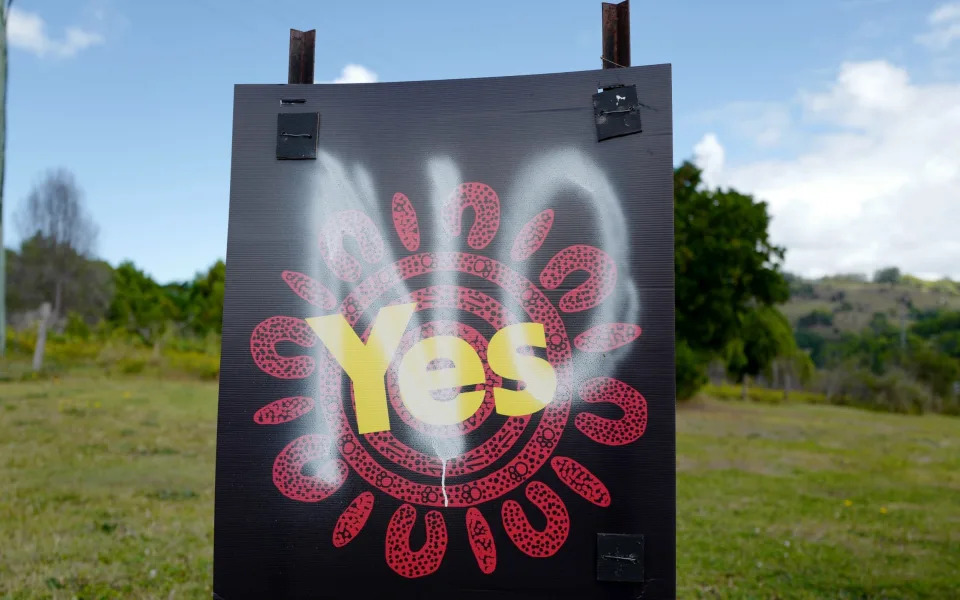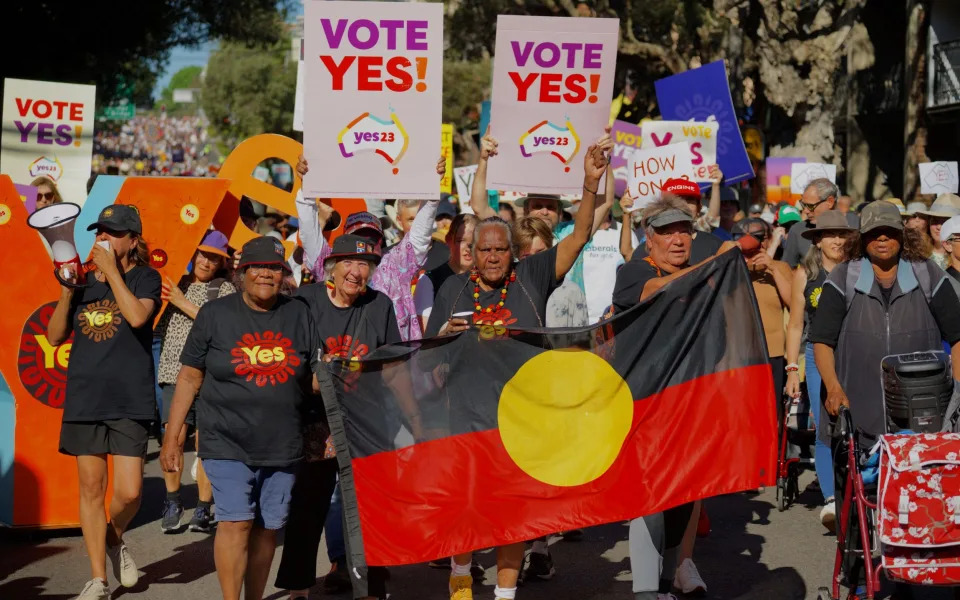Rishi Sunak government to preside over the biggest tax rises since records began
Angela Barnes
·Reporter
Thu, 28 September 2023
Photo: Justin Tallis via AP.
A tax rise equivalent to around £3,500 more per household is expected by the next general election, according to the Institute for Fiscal Studies (IFS).
It said the potential tax hike would amount to around 37% of national income, up from around 33% in 2019 and noted the UK government would be raising upwards of £100bn more in tax revenues each year as a result.
The IFS also highlighted that since comparable records began in the 1950s, no parliament has presided over a bigger increase in taxes.
The group noted that only during and in the immediate aftermath of the two world wars have government revenues grown by as much as they have in the period since 2019.
However, the government could decide to announce tax cuts in the run-up to the next election, which would of course alter the IFS projections.
Ben Zaranko, senior research economist at IFS, said: ‘It is inconceivable that this parliament will turn out to be anything other than a tax-raising one – and it looks nailed on to be the biggest tax-raising parliament since at least the Second World War. This is not, for the most part, a direct consequence of the pandemic.
“Rather, it reflects decisions to increase government spending, in part driven by demographic change, pressures on the health service, and some unwinding of austerity. It is likely that this parliament will mark a decisive and permanent shift to a higher-tax economy.”
Meanwhile, Mark Franks, director of welfare at the Nuffield Foundation, said demographic change combined with slow economic growth is creating an almost inevitable increase in tax revenues as a share of gross domestic product (GDP).
“There will be strong pressure in coming parliaments to raise taxes further to meet growing demand for public services such as healthcare. Future governments must not only have a credible and robust strategy for the economy and the public finances, but should also be forthright and transparent about the difficult trade-offs they will face.’
The next UK general election is scheduled to be held no later than 28 January 2025.
What did Jeremy Hunt previously say on tax rises?
During his last budget speech in March, chancellor Jeremy Hunt said the government would put a cap on the amount workers can accumulate in pensions savings over their lifetime before having to pay extra tax.
He also said the tax-free yearly allowance for the pension pot would rise from £40,000 to £60,000 – having been frozen for nine years.
Hunt also froze fuel duty – the 5p cut was kept for another year until April 2024.
Meanwhile, it was announced that alcohol taxes would rise in line with inflation from August, with new reliefs for beer, cider and wine sold in pubs, while tax on tobacco would increase by 2% above inflation, and 6% above inflation for hand-rolling tobacco.
Sunak set to preside over biggest tax-raising parliament on record, say experts
Dominic McGrath, PA Political Staff
Thu, 28 September 2023
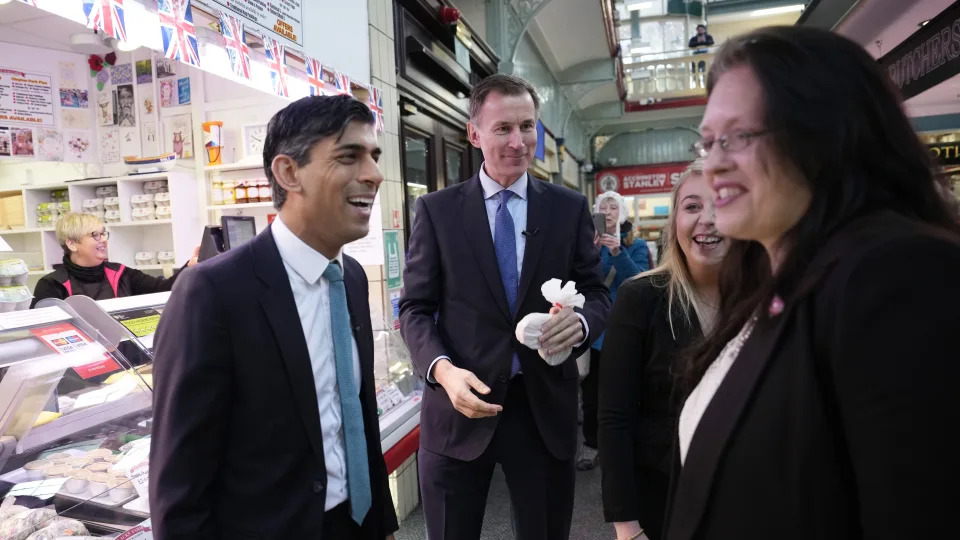
The current Parliament will have presided over the biggest set of tax rises since at least the Second World War, experts have said.
By the time of the next general election, taxes will likely have risen to around 37% of national income, according to analysis by the Institute for Fiscal Studies (IFS).
The widely respected think tank said that the spike was equivalent to around £3,500 more per household, even if in reality it will not be shared equally.
Since comparable records began in the 1950s, no parliament has seen a bigger increase in taxes.
Tory MPs have long complained about the unwillingness of Rishi Sunak and Chancellor Jeremy Hunt to contemplate tax cuts, with backbench complaints about current levels of tax.
The pair have instead stressed the need for fiscal responsibility amid still-high inflation.
But Mr Hunt is likely to face pressure to announce tax cuts, if not in the upcoming autumn statement, then at least before the next nationwide poll.
Ben Zaranko, a senior research economist at the IFS, said the pandemic could not be blamed for rising tax levels and predicted that a high-tax approach was here to stay regardless of who wins the next general election.
“It is inconceivable that this Parliament will turn out to be anything other than a tax-raising one – and it looks nailed on to be the biggest tax-raising parliament since at least the Second World War,” he said.
“This is not, for the most part, a direct consequence of the pandemic. Rather, it reflects decisions to increase Government spending, in part driven by demographic change, pressures on the health service, and some unwinding of austerity.
“It is likely that this Parliament will mark a decisive and permanent shift to a higher-tax economy.”
This was echoed by Mark Franks, the director of welfare at the Nuffield Foundation.
He said: “There will be strong pressure in coming parliaments to raise taxes further to meet growing demand for public services such as healthcare.
“Future governments must not only have a credible and robust strategy for the economy and the public finances, but should also be forthright and transparent about the difficult trade-offs they will face.”
Opposition parties seized on the findings, as Labour said that the Tories had “clobbered” the public.
Shadow chief secretary to the Treasury Darren Jones said: “Successive Tory government have overseen 13 years of low growth and stagnant wages. Their response in the face of this bankrupt legacy is always to load their failure onto working people. And what are we getting back? Crumbling public services.
“Brits are working hard but getting clobbered with 25 Tory tax rises and a continuing Conservative premium on their household budgets.”
Liberal Democrat Treasury spokesperson Sarah Olney said: “This Conservative Government crashed the economy and is making the public pay the price. This is the same party which promised not to raise people’s taxes and is now taxing families through the nose.
“Despite this, ministers have given tax cuts to the big banks, failed to close loopholes in the windfall tax on oil and gas giants and wasted eye watering sums on dodgy PPE contracts.”
A Treasury spokesperson said: “Despite needing to take the difficult decisions to restore public finances in the face of the dual shocks of the pandemic and Putin’s illegal invasion of Ukraine, the latest data shows our tax burden will remain lower than any major European economy.
“Driving down inflation is the most effective tax cut we can deliver right now, which is why we are sticking to our plan to halve it, rather than making it worse by borrowing money to fund tax cuts.
“We have also taken 3 million people out of paying tax altogether since 2010 through raising personal thresholds, and the Chancellor has said he wants to lower the tax burden further – but has been clear that sound money must come first.”
